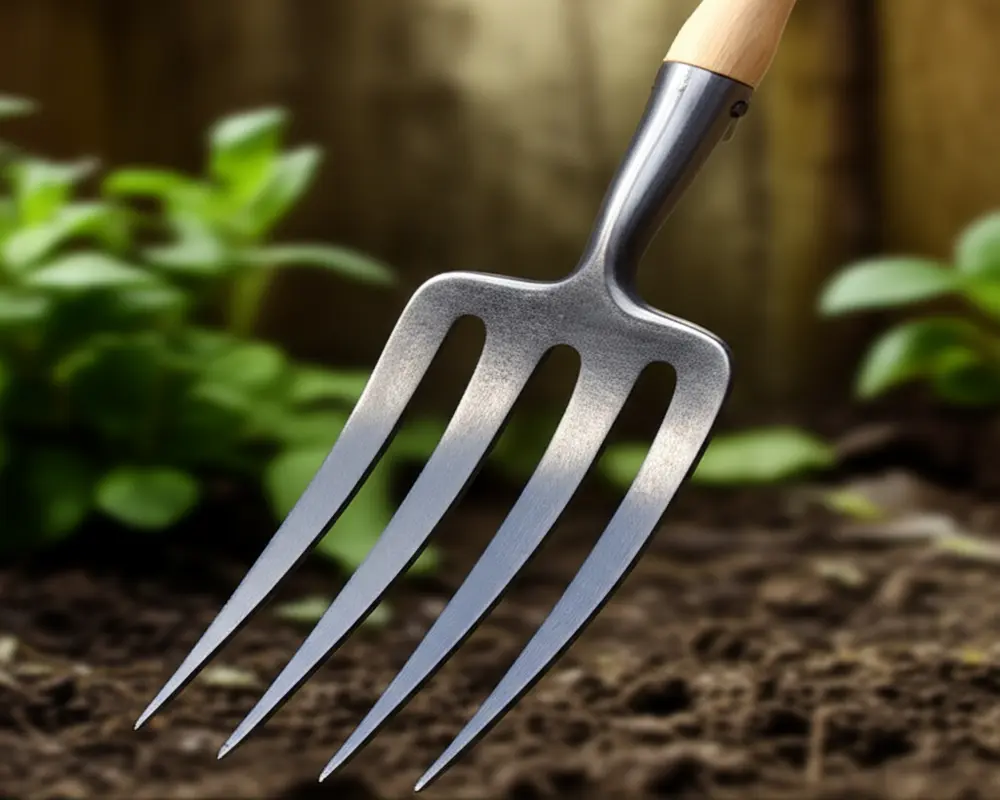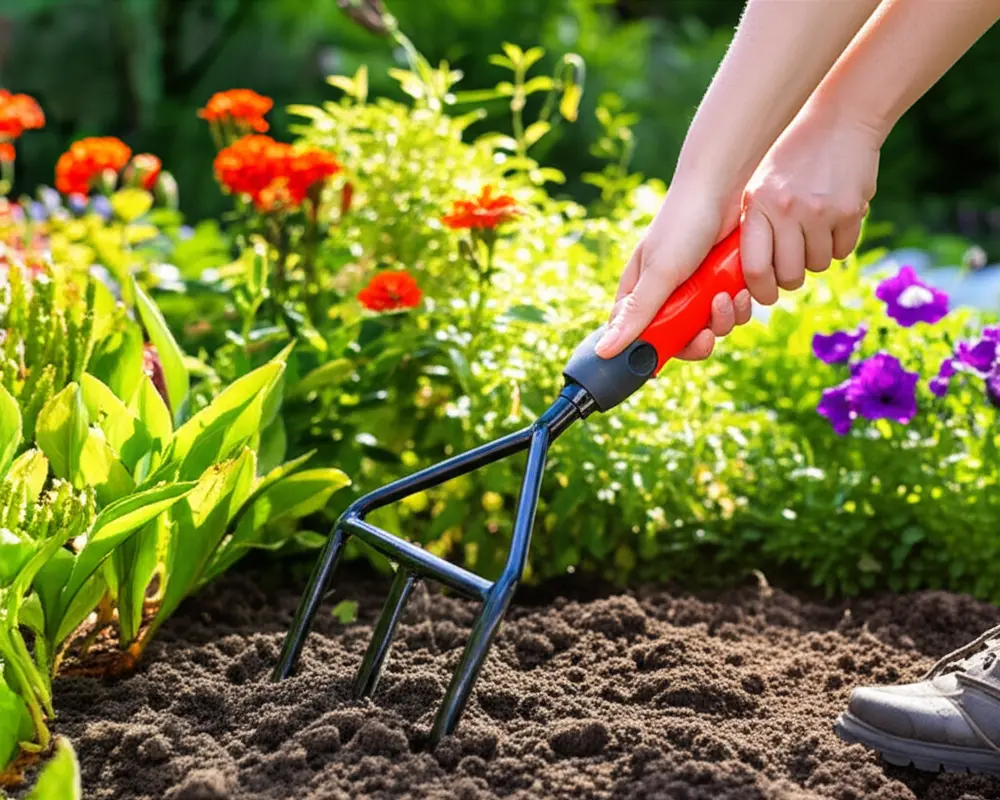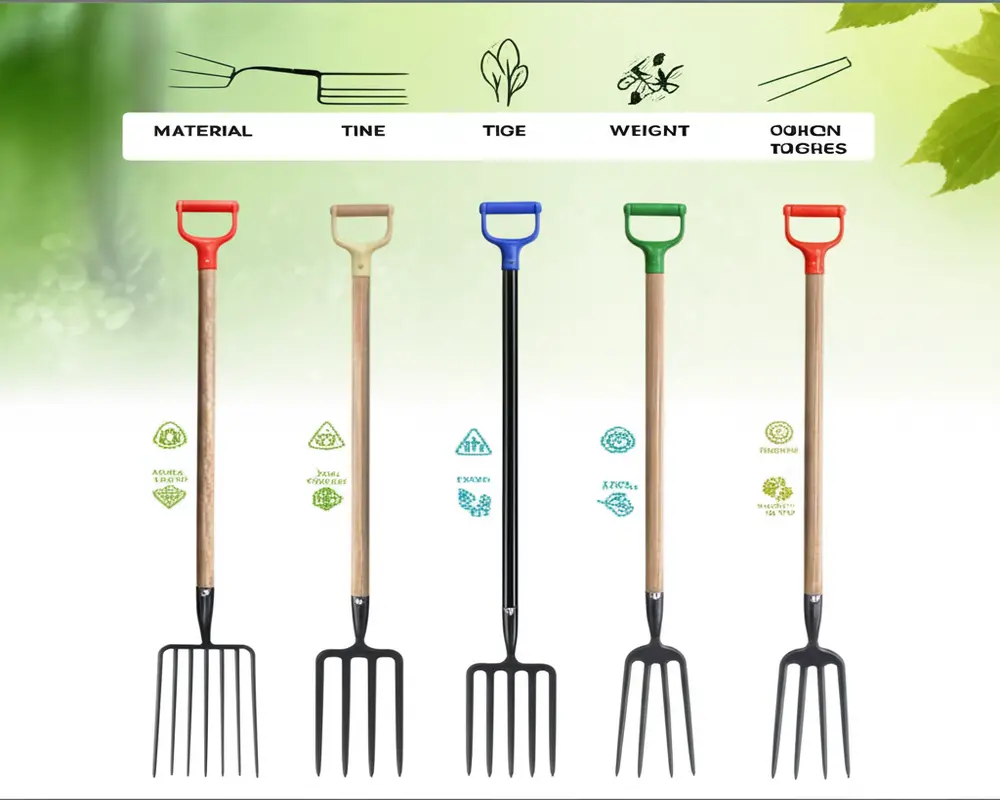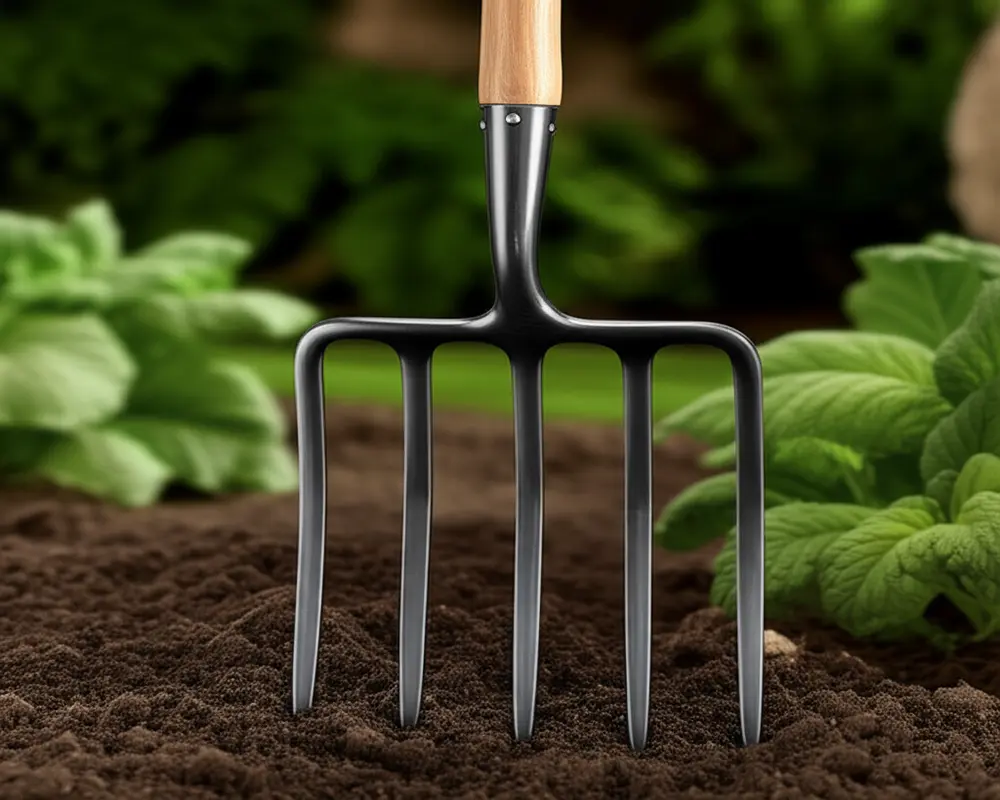The Ultimate Guide to Professional Garden Forks: Top Picks & Expert Advice
For those dedicated to serious gardening, investing in a professional garden fork is more than a luxury—it's a necessity to work efficiently and comfortably in tough soil conditions. Whether you are an avid gardener, landscaper, or someone who regularly deals with heavy, compacted soils, a well-made garden fork tailored to professional standards transforms your gardening experience.
This comprehensive guide delves into everything from the materials and design elements that define professional garden forks to ergonomic considerations and maintenance tips. We'll review top models for 2025, providing you with insights to choose the best garden fork suited to your needs and budget.
What Defines a “Professional” Garden Fork?
Not all garden forks are built the same. A professional garden fork stands apart by combining superior construction with ergonomic design, ensuring durability and ease of use across demanding tasks.
Superior Materials
Quality is key when it comes to materials. The most reputable professional garden forks employ forged steel, and understanding the difference between carbon steel and stainless steel is crucial. Forged carbon steel tends to excel in strength and edge retention, ideal for digging through rocky or clay-heavy soils. Meanwhile, stainless steel offers corrosion resistance, making it a suitable option if the fork is exposed to moisture frequently.
The handle often receives as much attention as the tines. High-grade ash wood is a traditional favorite, providing natural shock absorption and a comfortable grip, while modern alternatives such as fiberglass or composite materials offer lightweight durability and resistance to warping or cracking.
Another critical feature is the reinforced socket connection where the fork's tines meet the handle. A robust socket ensures the tool can withstand intensive use without bending or loosening over time.

Robust Construction & Design
The design of the tines has a direct impact on the fork's performance. Flat tines are excellent for slicing through soil and roots, while round or square tines may provide added strength for breaking heavy ground or turning compost.
Additionally, the integration between the shaft and handle must be well-balanced to reduce strain and enhance control. This stability is crucial in long gardening sessions to maintain efficiency and minimize fatigue.
Ergonomic Features
Ergonomics shape the overall comfort and usability of professional garden forks. Handle options include D-handles, T-handles, and long handles, each tailored to different styles of use and user preferences. For example, a D-handle offers greater control in confined spaces, while a long handle supports greater leverage in deep or dense soil.
Grip comfort and shock absorption qualities are key, especially when working with heavy soils. Moreover, selecting an appropriate fork length aligned with your stature can reduce back strain significantly.

Durability & Longevity
Professional garden forks are investments designed to last. That durability hinges on resistance to corrosion and physical wear. Excellent brands often back their forks with warranties, demonstrating confidence in manufacturing quality and providing buyers peace of mind.
Reviews and user testimonials often highlight the combination of material quality and design precision as vital markers of longevity.
Key Considerations When Choosing Your Professional Garden Fork
Intended Use & Tasks
Consider the primary work you intend for your garden fork. Will it often handle soil breaking, aerating, compost turning, or root crop digging? Each task can benefit from slightly different tine designs or handle types, reinforcing the importance of matching the fork to your gardening demands.
Soil Types & Conditions
Different soil types call for specific fork qualities. Heavy clay soils require strong, robust tines capable of breaking compact ground, while sandy soils might benefit from lighter, more flexible forks. Stony soils demand reinforced construction to resist bending or damage.
User Ergonomics & Personal Fit
Selecting the right length and weight is key to comfort and effectiveness. An ergonomic garden fork that fits your height and strength reduces fatigue and potential injury through better posture and balance.
Budget Considerations
While entry-level options may be tempting through their lower costs, investing in a quality professional garden fork offers better value in the long run with performance and durability. Consider your frequency of use and gardening intensity when budgeting your purchase.
Top Picks: Best Professional Garden Forks Reviewed
Our selection is based on hands-on testing under diverse gardening conditions, assessing factors such as durability, ergonomic comfort, and suitability for different soil types.
| Category | Product & Brand | Highlights | Price Range |
|---|---|---|---|
| Best Overall Digging Fork | Sneeboer Digging Fork | Forged carbon steel, ash handle, superior balance | $$$ |
| Best for Heavy Clay/Breaking Ground | DeWit Heavy-Duty Fork | Reinforced socket, extra-strong square tines | $$$ |
| Best for Aeration & Cultivating | Radius Garden Cultivation Fork | Lightweight, ergonomic T-handle | $$ |
| Best Stainless Steel Fork | Bulldog Stainless Fork | Rust-resistant, ideal for damp environments | $$ |
| Best Ergonomic Fork | Spear & Jackson Ergo Fork | D-handle design, shock-absorbing grip | $$ |
| Best Value Fork | Corona Value Garden Fork | Balance of quality and affordability | $ |

Each fork above was selected for distinct attributes to meet specific gardening needs and user preferences, providing options that cover a broad spectrum of quality and price points. For more detailed reviews of gardening tools, visit Garden Item Reviews Best Garden Spades.
Deep Dive into Features & Technologies
Manufacturing processes such as forging versus welding affect the strength and resilience of garden forks. Forged forks typically offer greater toughness due to metal grain alignment, while welding may be favored in budget models.
Socket connection design also varies, affecting handling and durability. Deep, reinforced sockets deliver better performance, especially in heavy-duty applications.
The science behind tine design is substantial. By tailoring tine shape and thickness, manufacturers optimize forks for specialized tasks from aeration to root harvesting.
Regarding handle materials, ash wood remains prized for traditional craftsmanship and natural shock absorption, while composite alternatives provide enhanced weather resistance and weight savings.
Leading Professional Garden Fork Brands
Among the top brands recognized for their craftsmanship and reliability are Sneeboer, known for handcrafted quality in the Netherlands; DeWit, with a reputation for heavy-duty, professional tools; Bulldog, specializing in stainless steel designs; Spear & Jackson, offering innovative ergonomics; Corona, lauded for value; and Radius Garden, focusing on lightweight ergonomics.
Each brand has a unique heritage and engineering philosophy shaping their garden forks' performance and consumer appeal. To explore these brands further, visit Sneeboer Official Website and DeWit Garden Tools.
Caring for Your Garden Fork
Proper care extends the life of your professional garden fork. After use, clean soil and debris promptly to prevent buildup and rust. Applying a light oil coating on metal parts can significantly reduce corrosion.
Store your fork in a dry location to avoid handle degradation, especially for wooden shafts that may warp or crack. Regularly inspect the fork for loose sockets or cracks, addressing these issues early through repairs or replacing parts.
Innovations and Future Trends
Emerging advances in ergonomics and materials science are shaping the next generation of garden forks. Expect lightweight alloys, improved handle shock absorption, and designs reducing user strain to gain prominence.
Innovations like modular handles and enhanced corrosion-resistant coatings also promise to enhance the practicality and lifespan of professional garden tools.
Frequently Asked Questions
What is the difference between a garden fork and a digging fork?
Although often used interchangeably, a digging fork is typically stronger with thicker tines for breaking compact soil, whereas a garden fork may focus more on aeration and delicate soil work.
Can I use a professional garden fork for compost turning?
Yes, many professional garden forks are versatile enough for compost turning, offering sturdy tines that easily handle organic matter aeration.
How long does a professional garden fork typically last?
With proper care, a high-quality professional garden fork can last decades, outlasting entry-level tools by a significant margin.
Are stainless steel garden forks better for wet climates?
Stainless steel forks resist rust and corrosion better, making them ideal for gardeners working in moist or rainy environments.
Where can I buy genuine professional garden forks?
Reliable garden forks are available through specialist retailers, official brand websites like DeWit Garden Tools, or reputable garden tool review platforms such as Garden Item Reviews.
Conclusion: Making Your Informed Investment
Choosing the right professional garden fork requires balancing quality materials, ergonomic design, and intended use. Prioritize durable forged steel, ergonomics matching your stature, and trusted brand reputation for long-term satisfaction.
By investing in quality, you ensure a tool that not only performs efficiently but also endures the test of time, reducing the need for frequent replacements and easing the physical demands of gardening.
Explore our detailed reviews and share your experiences to connect with a community passionate about gardening excellence.

